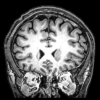After reading the following abstracts on Noopept demonstrating inhibition of glutamate+calcium excitotoxicity, decrease in stress-induced kinases, and increase in NGF and BDNF among other positives, I have decided to try lowering my clonazepam dose while taking ~40mg noopept 3-5 times a day to see if it takes away any of the depression, anxiety, racing obtrusive thoughts, physical uncomfortable-ness/restlessness/flu-like feelings, overall fatigue, and in general crappyness.
http://www.ncbi.nlm....pubmed/21395007
[On the mechanism of noopept action: decrease in activity of stress-induced kinases and increase in expression of neutrophines].
[Article in Russian]
Ostrovskaia RU, Vakhitova IuV, Salimgareeva MKh, Iamidanov RS, Sadovnikov SV, Kapitsa IG, Seredenin SB.
Abstract
The influence of noopept (N-phenylacetyl-L-prolylglycine ethyl ester, GVS-111)--a drug combining the nootrope and neuroprotector properties--on the activity of mitogen-activated protein kinases (MAPKs) and the level of NGF and BDNF gene and protein expression in the frontal cortex, hippocampus, and hypothalamus has been studied in rats. Under conditions of chronic administration (28 days, 0.5 mg/day, i.p.), noopept decreased the activity of stress-induced kinases (SAPK/JNK 46/54 and pERK1/2) in rat hippocampus and increases the level of mRNA of the BDNF gene in both hypothalamus and hippocampus. The content of BDNF protein in the hypothalamus was also somewhat increased. In the context of notions about the activation of stress-induced kinases, as an important factor of amyloidogenesis and tau-protein deposition in brain tissue, and the role of deficiency of the neurotrophic factors in the development of neurodegenerative processes, the observed decrease in the activity of stress-activated MAPKs and increased expression of BDNF as a result of noopept administration suggest thatthis drug hasaspecific activity withrespect to some pathogenetic mechanisms involved in the Alzheimer disease.
http://www.ncbi.nlm....pubmed/20095393
[The original nootropic and neuroprotective drug noopept potentiates the anticonvulsant activity of valproate in mice].
[Article in Russian]
Kravchenko EV, Ponteleeva IV, Trofimov SS, Lapa VI, Ostrovskaia RU, Voronina TA.
Abstract
The influence of the original dipeptide drug noopept, known to possess nootrope, neuroprotector, and anxiolytic properties, on the anticonvulsant activity of the antiepileptic drug valproate has been studied on the model of corazole-induced convulsions in mice. Neither a single administration ofnoopept (0.5 mg/kg, i.p.) nor its repeated introduction in 10 or 35 days enhanced the convulsant effect of corazole, which is evidence that noopeptalone does not possess anticonvulsant properties. Prolonged (five weeks) preliminary administration of noopept enhanced the anticonvulsant activity of valproate. This result justifies the joint chronic administration of noopept in combination with valproate in order to potentiate the anticonvulsant effect of the latter drug. In addition, the administration of noopept favorably influences the cognitive functions and suppresses the development of neurodegenerative processes.
http://www.ncbi.nlm....pubmed/12596521
[The original novel nootropic and neuroprotective agent noopept].
[Article in Russian]
Ostrovskaia RU, Gudasheva TA, Voronina TA, Seredenin SB.
Source
Laboratory of Psychopharmacology, Institute of Pharmacology, Russian Academy of Medical Sciences, Baltiiskaya ul. 8, Moscow, 125315 Russia.
Abstract
The paper describes pharmacological properties of the new nootropic drug noopept created using an original approach based on the imitation of a nonpeptide nootrope structure by means of the short-peptide design. In particular, the structure of pyracetam was designed using dipeptide nootropes. Experimental investigations of noopept (N-phenylacetyl-L-polyglycine ethyl ester) showed that the new drug exceeds pyracetam both with respect to the effective dose level (1000 times lower for noopept than for pyracetam) and in the spectrum of mnemotropic activity. In contrast to pyracetam facilitating only the early stages of the memory process, noopept positively influences the memory consolidation and retrieval steps as well. The new drug produces an additional selective anxiolytic action. The pronounced neuroprotective effect of noopept was demonstrated both in vivo (in cases of various forms of brain ischemia) and in vitro (on various neuronal models). The drug action is based on the antioxidant effect, the antiinflammatory action, and the ability to inhibit the neurotoxicity of excess calcium and glutamate, and to improve the blood rheology. It was established for the first time that the activity of noopept is retained both upon parenteral introduction and upon peroral administration, which is a principal advantage of this proline-containing dipeptide over other, more complex peptides. This property provided a basis for the development of a medicinal form of noopept for peroral usage. At present, noopept tablets (noopept 5 and 10 mg) are under clinical assessment as a means of treating cognitive deficiency of cerebrovascular and post-traumatic origin.
http://www.ncbi.nlm....pubmed/19240853
Noopept stimulates the expression of NGF and BDNF in rat hippocampus.
Ostrovskaya RU, Gudasheva TA, Zaplina AP, Vahitova JV, Salimgareeva MH, Jamidanov RS, Seredenin SB.
Source
V. V. Zakusov Institute of Pharmacology, Russian Academy of Medical Sciences, Moscow. rita@nicemail.ru
Abstract
We studied the effect of original dipeptide preparation Noopept (N-phenylacetyl-L-prolylglycine ethyl ester, GVS-111) with nootropic andneuroprotective properties on the expression of mRNA for neurotropic factors NGF and BDNF in rat hippocampus. Expression of NGF and BDNF mRNA in the cerebral cortex and hippocampus was studied by Northern blot analysis. Taking into account the fact that pharmacological activity ofNoopept is realized after both acute and chronic treatment, we studied the effect of single and long-term treatment (28 days) with this drug. Expression of the studied neurotropic factors in the cerebral cortex was below the control after single administration of Noopept, while chronic administration caused a slight increase in BDNF expression. In the hippocampus, expression of mRNA for both neurotrophins increased after acute administration of Noopept. Chronic treatment with Noopept was not followed by the development of tolerance, but even potentiated the neurotrophic effect. These changes probably play a role in neuronal restoration. We showed that the nootropic drug increases expression of neurotrophic factors in the hippocampus. Our results are consistent with the hypothesis that neurotrophin synthesis in the hippocampus determines cognitive function, particularly in consolidation and delayed memory retrieval. Published data show that neurotrophic factor deficiency in the hippocampus is observed not only in advanced Alzheimer's disease, but also at the stage of mild cognitive impairment (pre-disease state). In light of this our findings suggest that Noopept holds much promise to prevent the development of Alzheimer's disease in patients with mild cognitive impairment. Moreover, therapeutic effectiveness of Noopept should be evaluated at the initial stage of Alzheimer's disease.
There are more studies, but those are the ones that stood out as ones that would help with something like benzodiazepine withdrawal during while tapering off of them.
I'll post my results as time passes, but it should be obvious within 2 days whether it is helping enough to matter.
So far, I lowered my clonazepam dose from 2mg to 1.5mg last night(1mg in the morning .5mg at night, as opposed to 1mg/1mg) and I must note that while I feel many of the physical negatives they are much weaker and my mind is barely effected. I am not stuck in depressive thoughts. I have energy(more than normal...). I'm no more anxious than normal. Yet it is obvious I lowered my clonazepam dose, due to the slightly annoying physical symptoms. So far, I am very impressed, but I have to give it a day or more to really judge with certainty(it may jst be a matter of time before the real shitty effects kick in, with benzo tapering you never really know when theyre going to show the worst symptoms, but it is always within the first 2 days.)
I took:
20mg noopept three times yesterday before taking the lower dose
then I took 50mg before bed.
50mg upon waking up, feeling much better than I had imagined, along with my normal morning 1mg clonazepam
Things started to get even less effected by the lower dose after this(no doubt partially due to the clonazepam dose kicking up it's total concentration slightly.)
I plan to take 30-50mg throughout the day multiple times and I was curious if anyone rather experienced with noopept knows how long it lasts? Just so I don't have to mess around guessing when to take the next dose. I know its probably in a thread somewhere here, but I also wanted to share this experiment because if it works it is pretty revolutionary..
In the past I've tried piracetam, aniracetam, nefiracetam, coluracetam, and tons of other supplements. Aniracetam and coluracetam were the only two that helped somewhat and they do not compare to noopept's positive effects. Nefiracetam helped A LOT, but when I stopped taking nefiracetam all the symptoms came back, so it was basically just prolonging the problem. I'm guessing that was due to it's specific effects on the GABA receptor whereas noopept is helping through other mechanisms.
Also note, I'm taking high doses of noopept simply because to me it makes sense to make sure I'm giving it a fair trial and for something so stressing to the brain I figured larger doses are more logical than nootropic doses. Wish me luck : )
Edited by golden1, 12 June 2013 - 02:50 PM.
















































